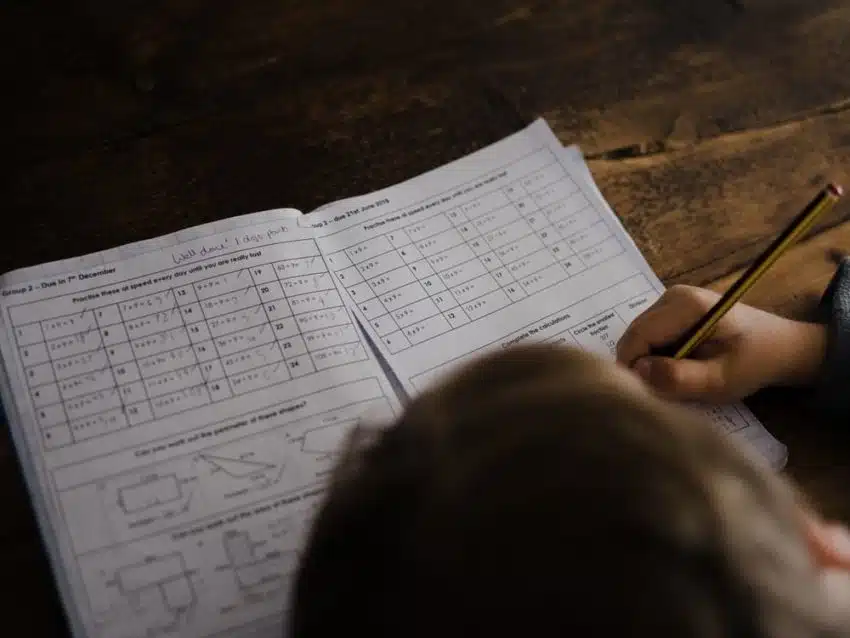Top 7 Alternatives To Standardized Testing
Updated: June 19, 2024

In the United States, it’s very common for colleges and universities to require prospective students to submit standardized test scores as part of their application process. At the same time, primary and secondary schools conduct standardized tests annually to gauge how students are faring. For years, there has been fierce debate over whether or not these test scores should hold so much weight, or even any at all. Despite the exams having pros and cons, there are alternatives to standardized testing that can be implemented.
We will share 7 of the top alternatives to standardized tests.
What are Standardized Tests?
Standardized tests have been around in America since the mid-1800s. A test is considered to be standardized if all test-takers have the same questions (or questions from the same bank) and are scored consistently. The goal is to be able to objectively compare students, in theory.
Standardized tests may have multiple-choice, true/false, essay questions, short-answers or a mixture of all types. These days, many standardized tests are administered digitally on computers, but they can also be taken by hand.

Pros and Cons of Standardized Testing
The controversy surrounding standardized testing is ongoing, perhaps because there are genuinely many pros and cons. So, depending on one’s stance, it’s very possible to argue for or against them.
Here’s a look at some commonly cited upsides:
- Provides a way to objectively measure performance and understand where improvement is needed
- Offer metrics for teacher evaluations
- Can gauge academic rigor
- Supplies data for marginalized groups of students
On the other hand, some cons are:
- Can be considered sexist, racist, and classist
- They measure test-taking skills more than knowledge
- Unfair to be used for teacher evaluations because they don’t always test what is taught
- Cannot be a predictor of future success
Alternatives to Standardized Testing
Some people believe that when you are designing education according to results on standardized tests, it’s all about the average. If you approach education this way, you alienate students and are essentially catering education to no one at all.
Instead of using standardized tests, these alternative methods have evolved that can take their place:
1. Multiple measures
As the name describes, multiple measures is a way of using multiple forms of data to track, gauge, and better understand how a student is performing.
For example, on a broad scale for data, states could access information like graduation rates, demographic information, and assessments created by teachers themselves.
School districts can also collect emotional skills surveys and game-based assessments. These all allow a student to perform in a comfortable environment without feeling the pressure of the outcome.
2. Portfolios
Like in the job market, prospective candidates submit portfolios to showcase their work. This could be the case in education as well. Portfolios can be composed of both individual and group projects. Teachers can assign projects year-round and students can have the freedom to choose which projects they believe depicts their best work.
In this way, they can create their own portfolio and have agency over their own work. It also allows students to focus on what they are actually interested in. In the process of creating and sharing a portfolio, students also gain from sharpening their presentation and communication skills.
3. Sampling
In most cases when it comes to data collection, researchers will take a sample of an entire population to represent the greater sum. This is how sampling would work for standardized tests. Rather than every individual student having to sit for the test, schools and school districts could select a representative sample for the whole population of students to take the tests.
4. Game-based assessment
As a newer option of the lot, many companies and educational institutions have begun toying (no pun intended) with the idea of offering game-based assessments. This doesn’t mean that students get to play any game they like. Instead, games are expertly designed to test higher-order thinking skills and problem-solving abilities. While traditional standardized exams fail to measure ability to take feedback or systems thinking, game-based assessments do so.
5. Social and emotional skills surveys
Researchers are continuing to find that nonacademic qualities play a huge role in determining one’s success. Characteristics like grit and perseverance are highly important. So, educational institutions realize that emotion and social skills are also a priority when it comes to teaching and measurement. Surveys are a great tool to measure these abilities.
6. Inspections
With any of these approaches, inspections can be a part of the equation. In fact, in Scotland, inspections are commonplace. An inspection is when a representative on behalf of the government will come to sit in on lessons for observation. Inspectors may also review students’ work and conduct interviews.
7. Low-stakes testing
Although standardized tests are commonplace, they don’t happen very often. Instead, they may be administered at the beginning and end of a year or even just once a year. Proponents of alternatives also believe that more tests may be the answer.
However, when adding more tests into the mix, it will translate into reducing the stakes of each test. By doing so, students may be able to ease their stress levels because the outcome won’t mean so much.
Additionally, with more frequent, low-stakes testing, students can be tested upon completion of a unit or topic so their memory will still be fresh.
Getting a Degree in Education
Do you think you have what it takes to implement better solutions than standardized testing? Do you want to change the way education works for the better?
You can be the difference that institutions need! By obtaining a degree in Education, you can work in administration, public policy, or on the ground directly with students. At University of the People (where prospective students don’t need to submit their standardized test scores to attend), we offer a tuition-free Master of Education degree.

To Test or Not to Test: That is the Question
In some instances, standardized testing is an adequate solution to fulfill the need of academic institutions, statewide governments, and educational boards. However, for many students, a standardized test doesn’t provide an accurate reflection of their capabilities.
Education is a robust endeavour, which means assessments should be, too. This is why many schools and school districts believe in alternatives to standardized testing.
